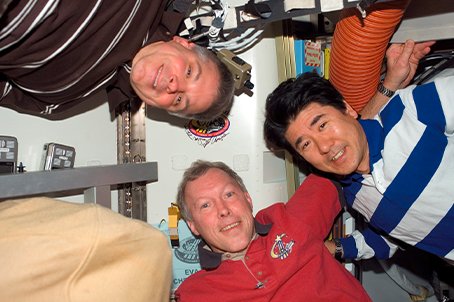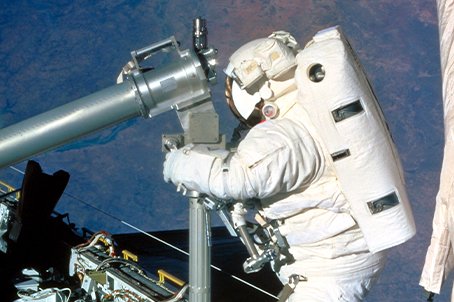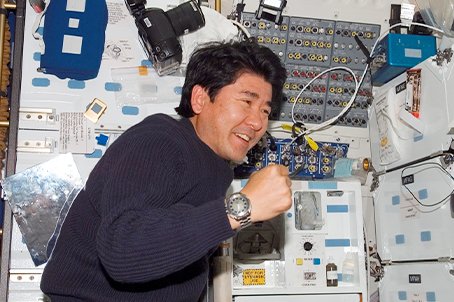DOI Takao
Ph.D. in Engineering
Former JAXA astronaut
First Japanese astronaut to take part in Extravehicular Activities (EVAs) in 1997
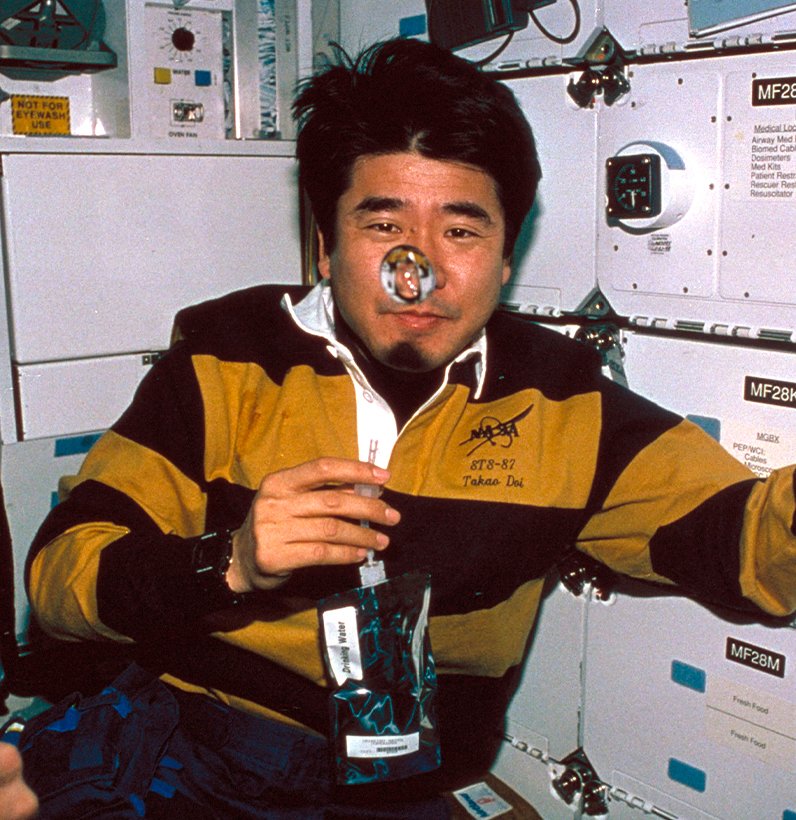
Profile
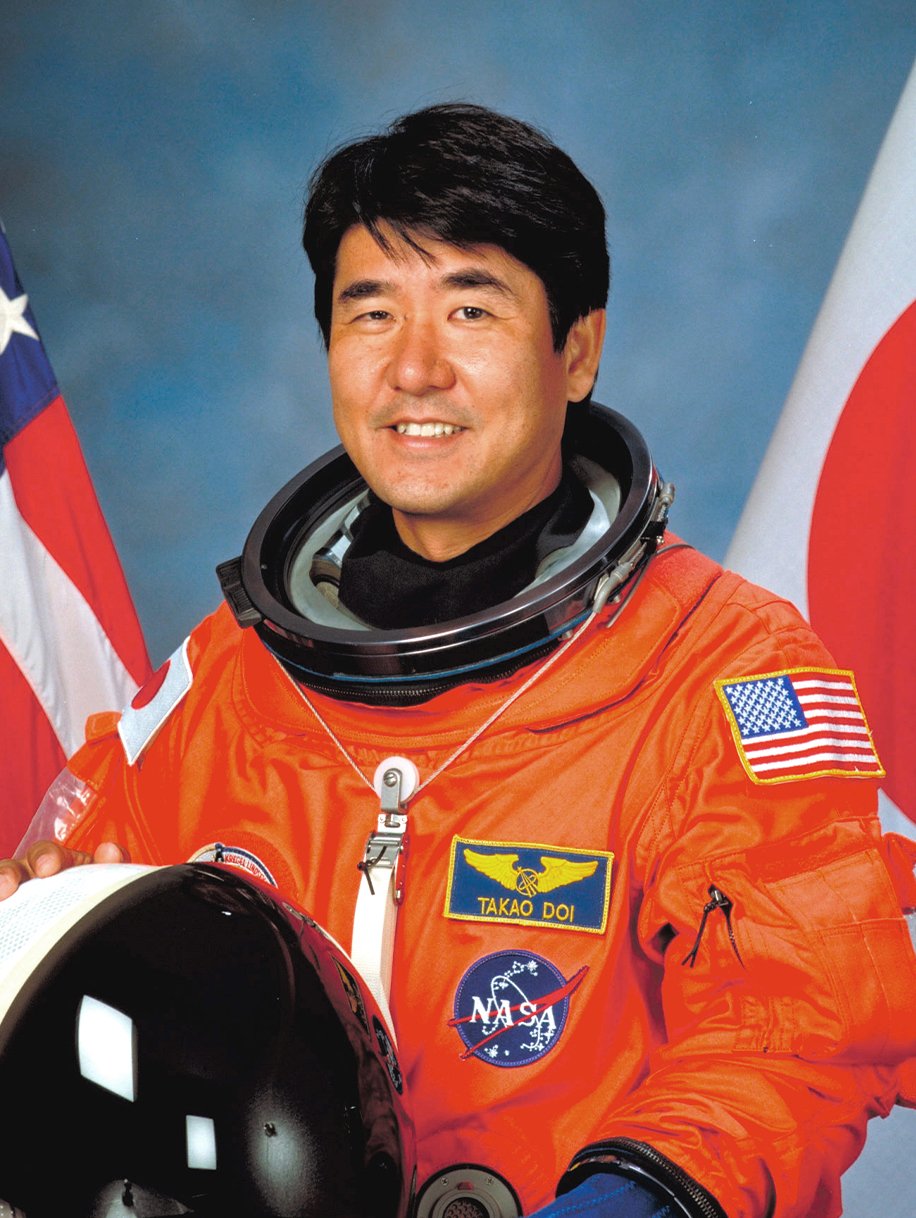
Missions
-
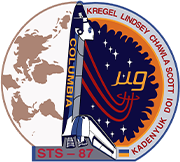 STS-87 mission (1997)
STS-87 mission (1997) -
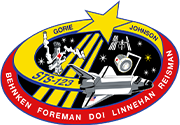 1J/A mission (STS-123 mission) (launched on March 11, 2008)
1J/A mission (STS-123 mission) (launched on March 11, 2008)
JAXA Digital Archives
Background
DOI Takao was born in 1954 in Tokyo. In 1997, he boarded the Space Shuttle Columbia and became the first Japanese astronaut to take part in Extravehicular Activities. In 2008, he participated in the STS-123 mission aboard the Space Shuttle Endeavor, helping to attach Kibo’s internal storage room to the International Space Station (ISS), and becoming the first Japanese astronaut to enter Japan’s first manned space facility.
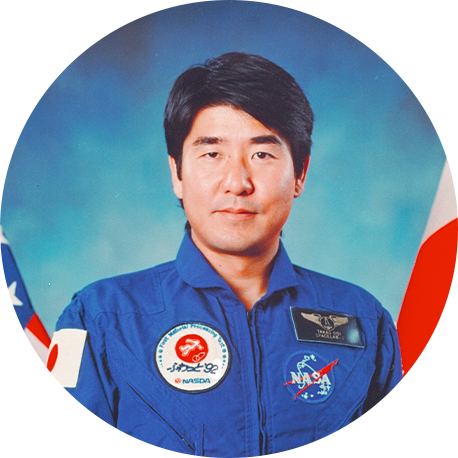
Takao
Born in Tokyo, Japan.
Received a Bachelor of Engineering in Aeronautics from the University of Tokyo. Received a Master of Engineering in 1980, and in 1983, completed a Doctor of Philosophy in Aerospace Engineering, also at the University of Tokyo. Received a Doctor of Philosophy in Astronomy from Rice University in 2004.
Completed study of space propulsion systems at the Institute of Space and Astronautical Science (ISAS).
Worked for the NASA Lewis Research Center as a National Research Council research associate.
Selected alongside Mamoru Mohri and Chiaki Mukai by the National Space Development Agency of Japan (NASDA, currently Japan Aerospace Exploration Agency) as one of three Payload Specialists for the First Material Processing Test (FMPT), which flew on the STS-47 (Spacelab J) mission.
Joined the National Space Development Agency of Japan (NASDA, currently Japan Aerospace Exploration Agency) as one of three Payload Specialists for the First Material Processing Test (FMPT), which flew on the STS-47 (Spacelab J) mission.
Studied microgravity fluid dynamics at the Center for Atmospheric Theory and Analysis, University of Colorado.
Assigned as a backup Payload Specialist for the First Material Processing Test (FMPT) and commenced training, mainly at NASA facilities.
Supported the First Material Processing Test (FMPT)/STS-47 mission as a backup Payload Specialist at NASA's Marshall Space Flight Center (MSFC).
Supported the International Microgravity Laboratory (IML-2) and mission STS-65 from the ground at MSFC as a Mission Scientist and a collaborative researcher on experiments regarding the influence of g-jitter on natural convection and diffusive transport.
Commenced training as a Mission Specialist for NASA.
Qualified as a Mission Specialist with NASA and NASDA.
Went on to commence Mission Specialist training with NASA to further improve qualities as an astronaut.
Flew aboard the Space Shuttle Columbia on the STS-87 mission.
During 16 days on the mission, tested a space crane, tools, and techniques being developed for assembly of the International Space Station (ISS), and manually captured a solar observation satellite beyond the initial scope of the mission, becoming the first Japanese astronaut to perform Extravehicular Activities (EVAs) and logging 12 hours and 43 minutes of spacewalk time.
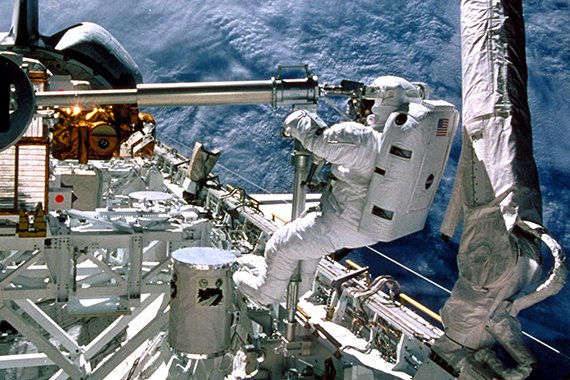
Participated in ISS Advanced Training for a long duration mission aboard the ISS.
Completed Doctor of Philosophy in Astronomy at Rice University.
Assigned as a crew member for the STS-123 (1J/A) mission.
Flew aboard the Space Shuttle Endeavour with mission STS-123.
Attached the Experiment Logistics Module-Pressurized Section (ELM-PS) of Kibo to the ISS using the Space Station Remote Manipulator System (SSRMS), becoming the first Japanese astronaut to enter the first Japanese ISS module in orbit, prepared the Experiment Logistics Module-Pressurized Section (ELM-PS) and orchestrated transfer activities between the Space Shuttle and ISS as the mission's load master.
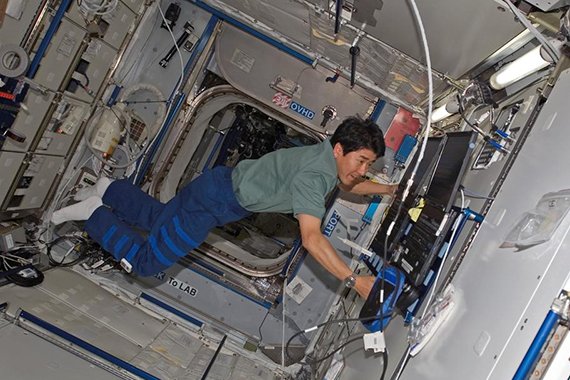
Served as D/1, Chief, Space Applications Section (SAS), United Nations Office for Outer Space Affairs (UNOOSA).
Appointed professor in the Unit of Synergetic Studies for Space at Kyoto University.
Appointed Program-Specific Professor at the Graduate School of Advanced Integrated Studies in Human Survivability, Kyoto University.
Unless specified otherwise, rights to all images belong to ©JAXA




